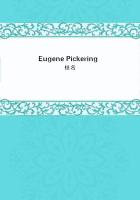"We were the first station around here to install the automatic ramp gates--only between the Milparinka road and the homestead, of course. The paddock gates still have to be opened and closed by hand."
"Well, I reckon the bloke that invented these gates must have opened and closed a lot in his time, eh?" Frank grinned; it was the first sign of amusement he had shown.
But then he fell silent, so his mother concentrated on her driving, unwilling to push him too quickly. When they passed under the last gate and entered the Home Paddock, he gasped.
"I'd forgotten how lovely it is," he said.
"It's home," said Fee. "We've looked after it."
She drove the Rolls down to the garages and then walked with him back to the big house, only this time he carried his case himself. "Would you rather have a room in the big house, Frank, or a guesthouse all to yourself?" his mother asked.
"I'll take a guesthouse, thanks." The exhausted eyes rested on her face. "It will be nice to be able to get away from people," he explained. That was the only reference he ever made to conditions in jail. "I think it will be better for you," she said, leading the way into her drawing room. "The big house is pretty full at the moment, what with the Cardinal here, Dane and Justine home, and Luddie and Anne Mueller arriving the day after tomorrow for Christmas." She pulled the bell cord for tea and went quickly round the room lighting the kerosene lamps. "Luddie and Anne Mueller?" he asked.
She stopped in the act of turning up a wick, looked at him. "It's been a long time, Frank. The Muellers are friends of Meggie's." The lamp trimmed to her satisfaction, she sat down in her wing chair. "We'll have dinner in an hour, but first we'll have a cup of tea. I have to wash the dust of the road out of my mouth."
Frank seated himself awkwardly on the edge of one of the cream silk ottomans, gazing at the room in awe. "It looks so different from the days of Auntie Mary."
Fee smiled. "Well, I think so," she said.
Then Meggie came in, and it was harder to assimilatethe fact of Meggie grown into a mature woman than to see his mother old. As his sister hugged and kissed him he turned his face away, shrank inside his baggy coat and searched beyond her to his mother, who sat looking at him as if to say: It doesn't matter, it will all seem normal soon, just give it time. A minute later, while he was still searching for something to say to this stranger, Meggie's daughter came in; a tall, skinny young girl who sat down stiffly, her big hands pleating folds in her dress, her light eyes fixed first on one face, then on another. Meggie's son entered with the Cardinal and went to sit on the floor beside his sister, a beautiful, calmly aloof boy.
"Frank, this is marvelous," said Cardinal Ralph, shaking him by the hand, then turning to Fee with his left brow raised. "A cup of tea? Very good idea."
The Cleary men came into the room together, and that was very hard, for they hadn't forgiven him at all. Frank knew why; it was the way he had hurt their mother. But he didn't know of anything to say which would make them understand any of it, nor could he tell them of the pain, the loneliness, or beg forgiveness. The only one. who really mattered was his mother, and she had never thought there was anything to forgive. It was the Cardinal who tried to hold the evening together, who led the conversation round the dinner table and then afterward back in the drawing room, chatting with diplomatic ease and ****** a special point of including Frank in the gathering.
"Bob, I've meant to ask you ever since I arrived where are the rabbits?" the Cardinal asked. "I've seen millions of burrows, but nary a rabbit." "The rabbits are all dead," Bob answered.
"Dead?"
"That's right, from something called myxomatosis. Between the rabbits and the drought years, Australia was just about finished as a primary producing nation by nineteen forty-seven. We were desperate," said Bob,warming to his theme and grateful to have something to discuss which would exclude Frank.
At which point Frank unwittingly antagonized his next brother by saying, "I knew it was bad, but not as bad as all that." He sat back, hoping he had pleased the Cardinal by contributing his mite to the discussion. "Well, I'm not exaggerating, believe me!" said Bob tartly; how would Frank know?
"What happened?" the Cardinal asked quickly.















